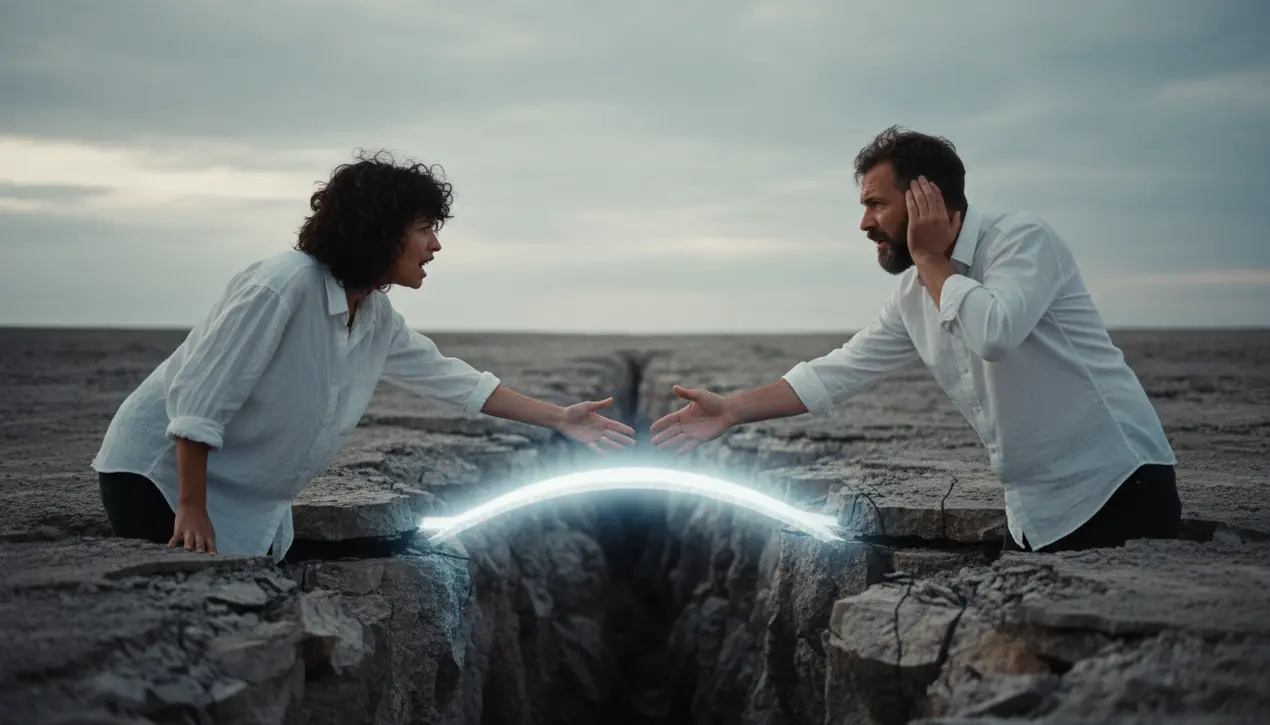
OthereducationEducational Policy
The Lost Art of Listening: How to Rebuild When Communication Fails
LA
Laura Bennett
5 hours ago7 min read5 comments
It starts with a spark—a new connection with a colleague, friend, or partner where conversation feels effortless. You're in sync, finishing each other's thoughts, convinced you've found someone who truly understands you.It's easy to forget the inherent gap that exists between any two people's private experiences. Then, the rupture occurs.A casual comment causes offense. A planned evening sours into quiet frustration.You find yourselves in the same room, having shared the same events, yet arguing over whose version of reality is correct. The connection is severed, replaced by confusing static.What do you do when the bridge between two people collapses? This is more than a relational problem; it's a fundamental human struggle. In conversations with dozens of couples and coworkers, the stories are strikingly similar: a profound sense of being misunderstood, of speaking a language the other person no longer comprehends.The instinct is to talk louder, to repeat your argument with more force, to win. But the pioneering psychologist Carl Rogers, speaking during the high-stakes tensions of the Cold War, proposed a radical, counterintuitive solution.Addressing the Centennial Conference on Communications in 1951, Rogers identified the core conditions for genuine communication to occur. His crucial insight was that we cannot communicate effectively when our primary goal is to be heard, to defend, or to persuade.The real work, the difficult work, lies in the listening. Rogers argued that for true understanding to break through, we must practice 'empathetic understanding'—to see the expressed idea and attitude from the other person's point of view, to sense the emotional landscape they are navigating.This is not about agreement; it is about accurate perception. It demands a temporary suspension of your own worldview, a setting aside of your judgments, to truly step into their frame of reference.It is the psychological equivalent of a defensive driver scanning the entire road ecosystem, not just the car directly ahead. Recall the last time you felt truly heard.The person likely gave you their full attention, reflected your words back to confirm understanding, and made you feel your perspective was valid. That feeling is disarming.It lowers defenses and creates the psychological safety necessary for real dialogue to begin. Rogers contended this is the only genuine way to facilitate change in another person—not through force, but by creating an environment where change can organically occur.When people feel understood, their rigid positions soften. The energy once spent defending their reality can be redirected toward constructing a shared one.In our hyper-connected, perpetually opinionated world, this feels like a lost art. We are taught to debate, to advocate, to present our case.We are rarely taught to listen with the intent to understand, rather than to merely reply. The next time you find yourself on that precipice, locked in a battle over reality, try a Rogersian experiment.Stop. Breathe.Make your sole objective to restate the other person’s position to their satisfaction. To see the world, for a moment, through their eyes.It is the most challenging, and most transformative, communication skill there is. It is the only way to stop clinging to the cliff's edge and start building a new bridge, together.
#communication
#psychology
#Carl Rogers
#conflict resolution
#relationships
#featured
#interpersonal skills
Stay Informed. Act Smarter.
Get weekly highlights, major headlines, and expert insights — then put your knowledge to work in our live prediction markets.
Related News
Comments
Loading comments...
© 2025 Outpoll Service LTD. All rights reserved.